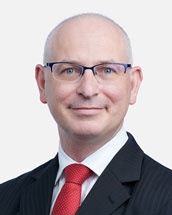In brief
In a recent press release,1 the Securities and Futures Commission (SFC) published details,2 Frequently Asked Questions,3 and application forms4 for the new grant scheme to subsidise the expenses incurred by Open-ended Fund Companies (OFCs) successfully incorporated in, or re-domiciled to, Hong Kong (“Grant Scheme“). Subject to certain conditions, the Grant Scheme will be available on a first-come, first-served basis, has a planned application period of three years, and will cover 70% of eligible expenses paid to Hong Kong-based service providers (“Eligible Expenses“) subject to a cap of HKD 1 million per OFC.5 The Grant Scheme represents a further important step in ongoing enhancements and incentives to promote use of the OFC regime and reinforce Hong Kong’s role as a leading capital raising venue and status as an international asset and wealth management centre. We discuss the scheme requirements in more depth below.
Contents
- In more detail
- Next steps
- Conclusion
In more detail
The Grant Scheme was first proposed in the 2021-22 Budget Speech6 by the Financial Secretary (“Financial Secretary“) of the Government of the Hong Kong Special Administrative Region.7 At the same time, the Financial Secretary also confirmed the intended timing for submission of a legislative proposal to address the re-domiciliation process. Whilst the details of the re-domiciliation process are yet to be confirmed, they were discussed at the Legislative Council Panel on Financial Affairs in February of this year with the stated aim of introducing a Bill to the Legislative Council in the second quarter of this year.8 In anticipation of this proposed timing, the Grant Scheme addresses the expenses for newly incorporated OFCs and those for re-domiciled funds. The key aspects of the Grant Scheme include the following:
| What is the application period? | The application period commenced 10 May 2021 (“Effective Date“) and ends 9 May 2024, but may end sooner if all of the funding for the Grant Scheme has been exhausted prior to this date. |
| Who is eligible to apply? | OFCs successfully incorporated in Hong Kong and non-Hong Kong fund corporations successfully re-domiciled to Hong Kong as OFCs on or after the Effective Date of the Grant Scheme are eligible to apply.The investment manager for the OFC should make the application on behalf of the OFC. |
| What are the Eligible Expenses under the Grant Scheme? | The following broad categories of expenses paid to Hong Kong-based service providers are eligible for subsidy:Fees charged by law firms or legal advisers for legal work in relation to the incorporation/re-domiciliation of an OFC, including:the drafting of legal documents and offering documents of the OFCwork done in relation to the authorisation of an OFC with the SFCFees charged by auditors, accountants or tax advisors for accounting and/or tax services in relation to the incorporation/re-domiciliation of an OFCFees charged by fund administrators, corporate service providers or company secretaries for incorporation/re-domiciliation services in relation to the set-up of an OFC, including work done for all filings necessary for the incorporation/re-domiciliation or registration of an OFCFees charged by regulatory consultants for work done in relation to the incorporation/redomiciliation of an OFC and the authorisation of an OFC with the SFCFees charged by listing agents in the case of listed OFCs |
| Are there any limits to the amount of Eligible Expenses or number of OFCs that can be subsidised under the Grant Scheme? | The grant amount is limited to 70% of the Eligible Expenses and capped at HKD 1 million per OFC.An investment manager can apply for grants for a maximum of three OFCs. |
| What is the application process for an OFC and is there a time limit to make an application under the Grant Scheme? | For private OFCs, a grant application must be submitted to the SFC within three months from the date of the certificate of incorporation or certificate of re-domiciliation being issued by the Company Registry.For public OFCs, a two-step process applies as follows:Applicants may submit a Public Open-ended Fund Companies – Confirmation of Intention to Apply for a Grant under the Grant Scheme for Open-ended Fund Companies form as part of the application for the OFC submitted to the SFC.The application form and supporting information must then be submitted to the SFC within three months from the date on which the authorisation of the public OFC becomes effective. |
| Are OFCs receiving a subsidy subject to any restrictions? | An OFC awarded a grant cannot commence winding-up or apply for termination of its registration within two years from the date of its incorporation or re-domiciliation. |
| Is a Grant Scheme subsidy subject to any clawback arrangements? | Any subsidy provided under the Grant Scheme can be clawed back if the OFC commences winding-up proceedings or applies for termination of its registration within two years from the date of incorporation or re-domiciliation. |
Next steps
The Grant Scheme provides a welcome benefit and has the potential to significantly reduce the costs of establishing OFCs in Hong Kong or re-domiciling a foreign fund for registration as an OFC. It provides a further compelling argument to consider Hong Kong as a domicile of first choice for asset and wealth management. Investment managers that may wish to take advantage of the Grant Scheme should:
- Familiarise themselves with the Grant Scheme application process
- Consider implementing an appropriate internal procedure to:
- document the criteria used to select the OFCs for which they will make a Grant Scheme application and those for which no application will be made
- track and document the Eligible Expenses to be able to meet the application process requirements
- track the number of OFCs for which applications are made so as not to exceed the three OFC limit
Conclusion
We will continue to monitor further developments in the OFC regime including the release of any exposure drafts of the legislation to give effect to the re-domiciliation proposal. To discuss how our experience with OFCs can assist you, or if you have any questions on any of the matters above, please do not hesitate to liaise with your usual contact at Baker McKenzie or the lawyers listed in this Alert.
1 https://apps.sfc.hk/edistributionWeb/gateway/EN/news-and-announcements/news/doc?refNo=21PR47
2 https://www.sfc.hk/-/media/EN/files/ER/PDF/OFC-and-REIT-Grant-Scheme–PR-AttachmentEN.pdf
3 https://www.sfc.hk/-/media/files/PCIP/FAQ-PDFS/FAQ-on-OFC-and-REIT-Grant-Scheme__20210510.pdf
4 https://www.sfc.hk/en/Forms/products/Investment-products-Forms-and-checklists#section10
5 https://www.sfc.hk/-/media/EN/files/ER/PDF/OFC-and-REIT-Grant-Scheme–PR-AttachmentEN.pdf
6 https://www.budget.gov.hk/2021/eng/speech.html
7 Please refer to our earlier client alert on this topic for more information available at : https://insightplus.bakermckenzie.com/bm/financial-institutions_1/hong-kong-cost-subsidies-to-set-up-or-re-domicile-open-ended-fund-companies-announced-as-part-of-budget-measures
8 https://www.legco.gov.hk/yr20-21/english/panels/fa/papers/fa20210201cb1-533-6-e.pdf






